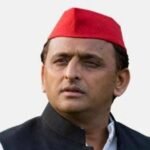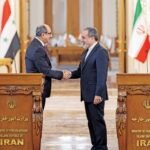
Arabian Times News Network
In the ever-dynamic recent statements by prominent leaders have sparked considerable debate and intrigue. Akhilesh Yadav, the Samajwadi Party (SP) leader, made headlines with his remark suggesting that after the Maharashtra elections, Uttar Pradesh Chief Minister Yogi Adityanath’s position might become vulnerable. Meanwhile, Prime Minister Narendra Modi, addressing party workers, emphasized the importance of unity, asserting that “if you stay united, you will be safe” (ek rahoge toh safe rahoge). Both comments are loaded with political undertones, reflecting the shifting dynamics in Indian politics.
Akhilesh Yadav’s statement can be interpreted in multiple ways. Firstly, it hints at the evolving coalition dynamics among opposition parties under the INDIA alliance. If the Maharashtra elections demonstrate a united opposition successfully challenging the BJP in a critical state, it could signal a broader shift in the political narrative across India. Yadav’s assertion could imply that the growing momentum of the opposition might impact BJP’s strongholds, including Uttar Pradesh, the heart of Yogi Adityanath’s political influence.
Secondly, it may be a direct jibe at the BJP’s internal dynamics. Over the years, there have been murmurs about internal discontent within the party regarding Adityanath’s leadership style. Yadav’s comment might be an attempt to exploit these potential cracks, portraying Adityanath as vulnerable and stirring uncertainty among BJP supporters in Uttar Pradesh.
Lastly, Yadav’s statement could also be a morale-boosting signal to his party and allies, suggesting that the BJP’s grip on power is not as unshakeable as it appears. By pointing out the potential vulnerability of a high-profile BJP leader like Adityanath, Yadav aims to energize his party cadre ahead of upcoming elections.
Prime Minister Narendra Modi’s statement, “if you stay united, you will be safe,” appears to be a counter to the opposition’s increasing cohesion under the INDIA alliance. Modi’s emphasis on unity underscores the BJP’s awareness of the challenges posed by a united opposition. The statement serves a dual purpose:
- Internal Cohesion: It acts as a reminder to BJP leaders and workers to avoid internal conflicts, maintain discipline, and focus on collective goals. This is crucial as the party prepares for the 2024 general elections, where even minor internal discord could be exploited by opponents.
- Message to the Public: The statement also resonates with BJP’s larger narrative of a stable and united leadership being essential for the country’s development and security. Modi’s words aim to contrast the BJP’s perceived stability with what the party portrays as the opposition’s chaotic coalition.
These statements reflect the high-stakes nature of Indian politics as key elections approach. Akhilesh Yadav’s comment targets the BJP’s vulnerability, attempting to shift the narrative in favor of the opposition. On the other hand, PM Modi’s call for unity seeks to solidify BJP’s position by preemptively addressing potential challenges.
The Maharashtra elections, given their symbolic importance, are being viewed as a litmus test for the INDIA alliance. If the opposition succeeds there, it could galvanize efforts across other states, including Uttar Pradesh. However, the BJP remains a formidable force with robust grassroots machinery, strategic leadership, and a proven ability to navigate challenges.
The next few months will reveal whether Akhilesh Yadav’s prediction holds weight or whether PM Modi’s call for unity fortifies the BJP’s position. Either way, these developments underline the intense political battle shaping India’s electoral future.









